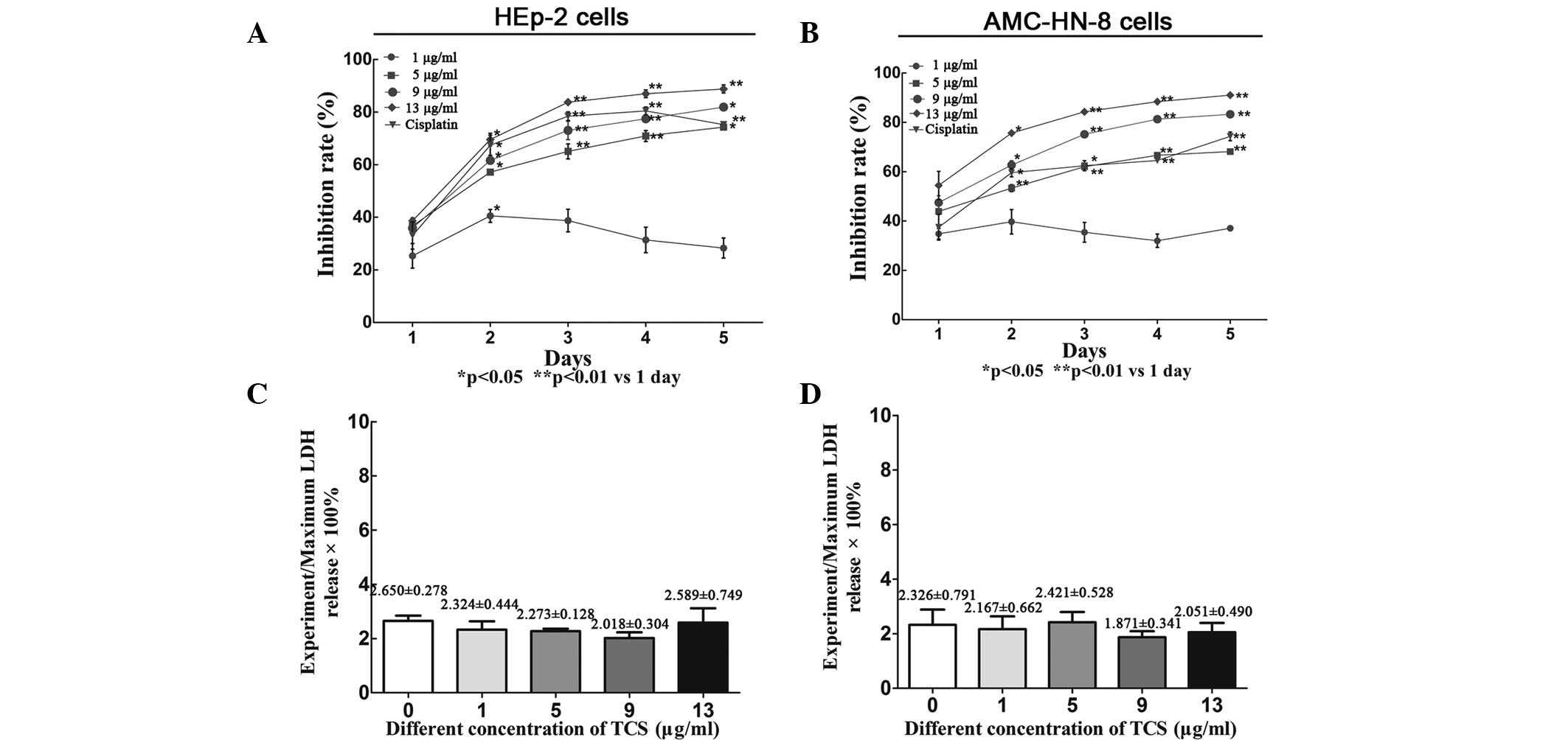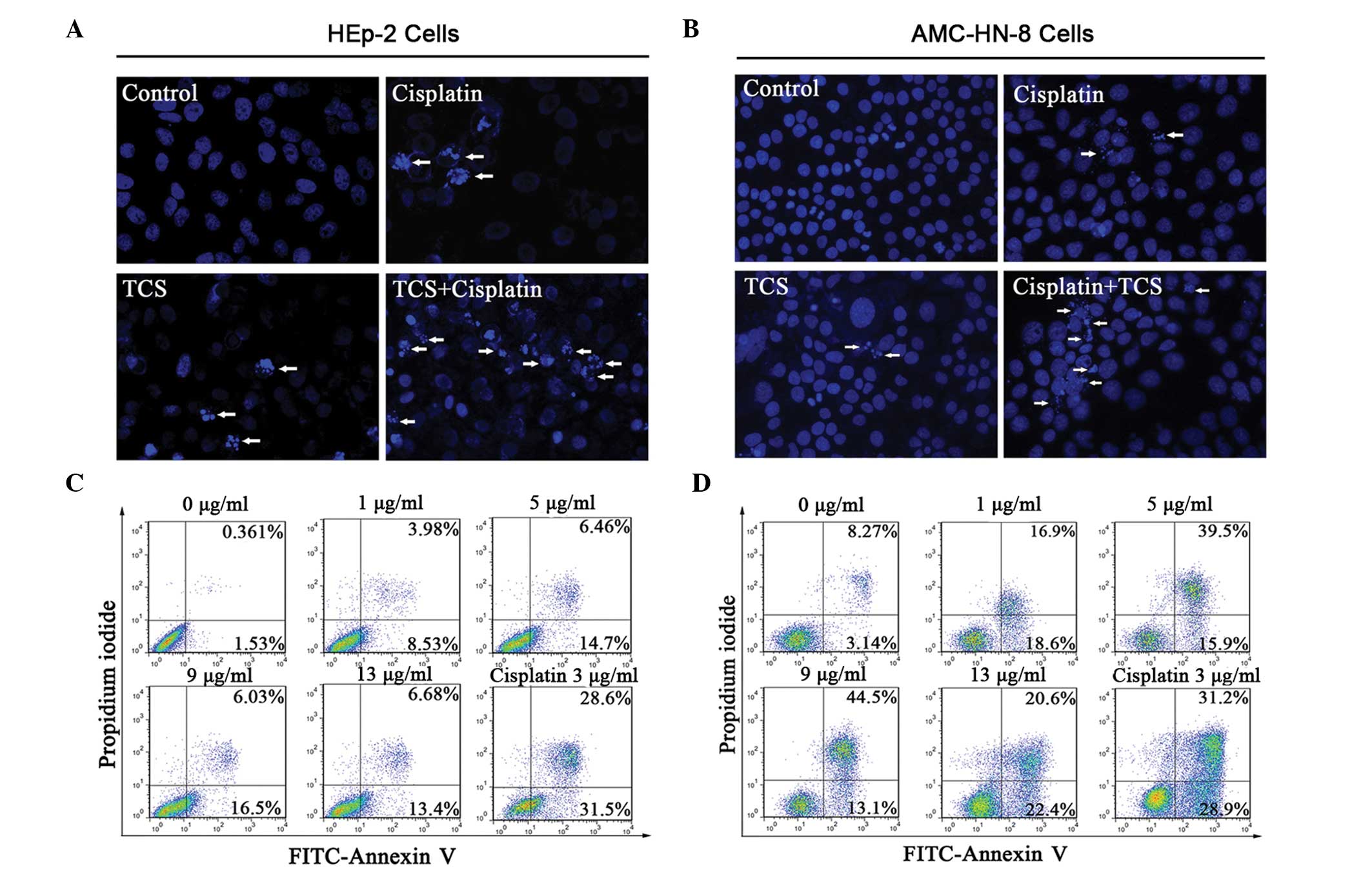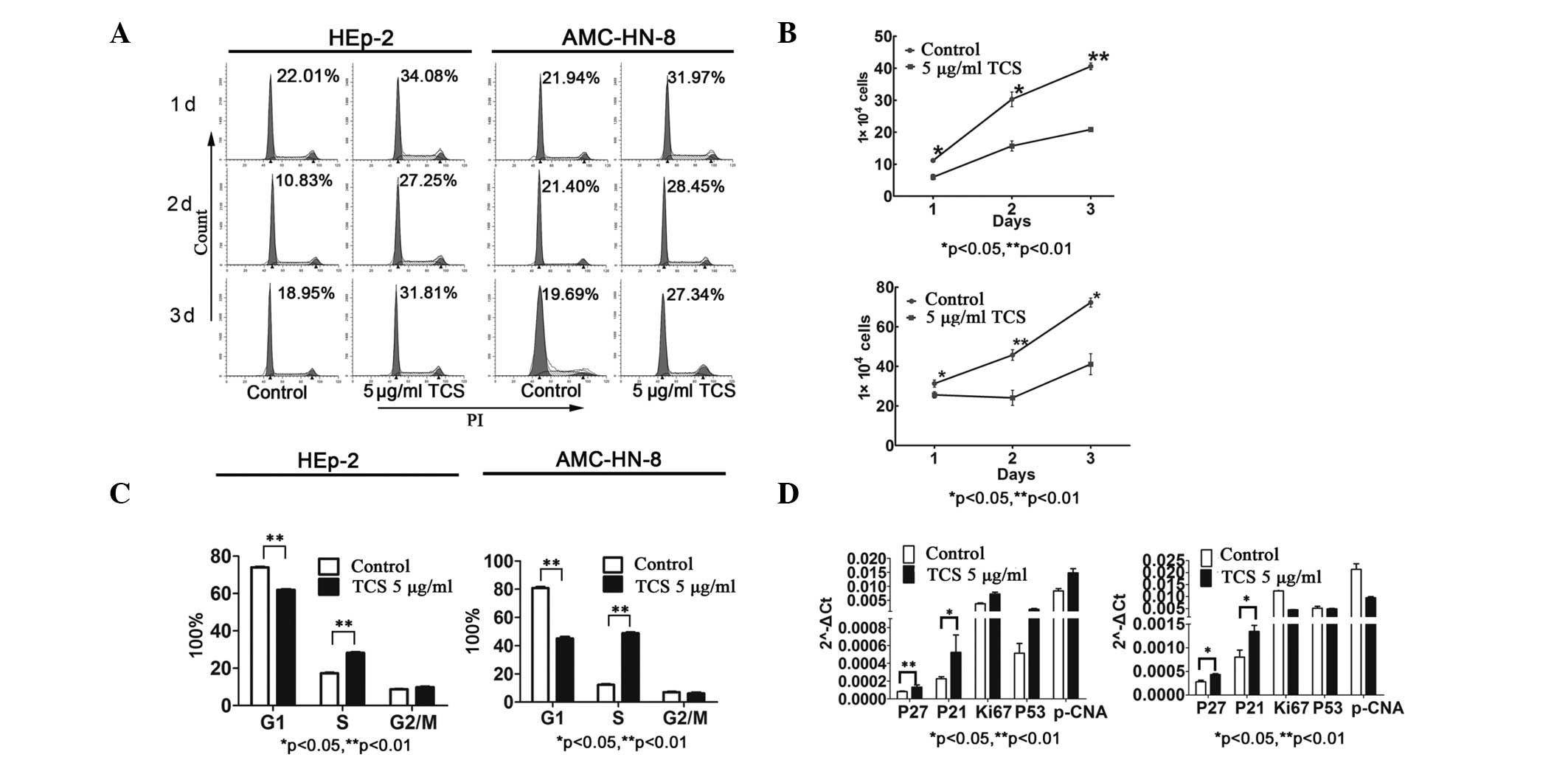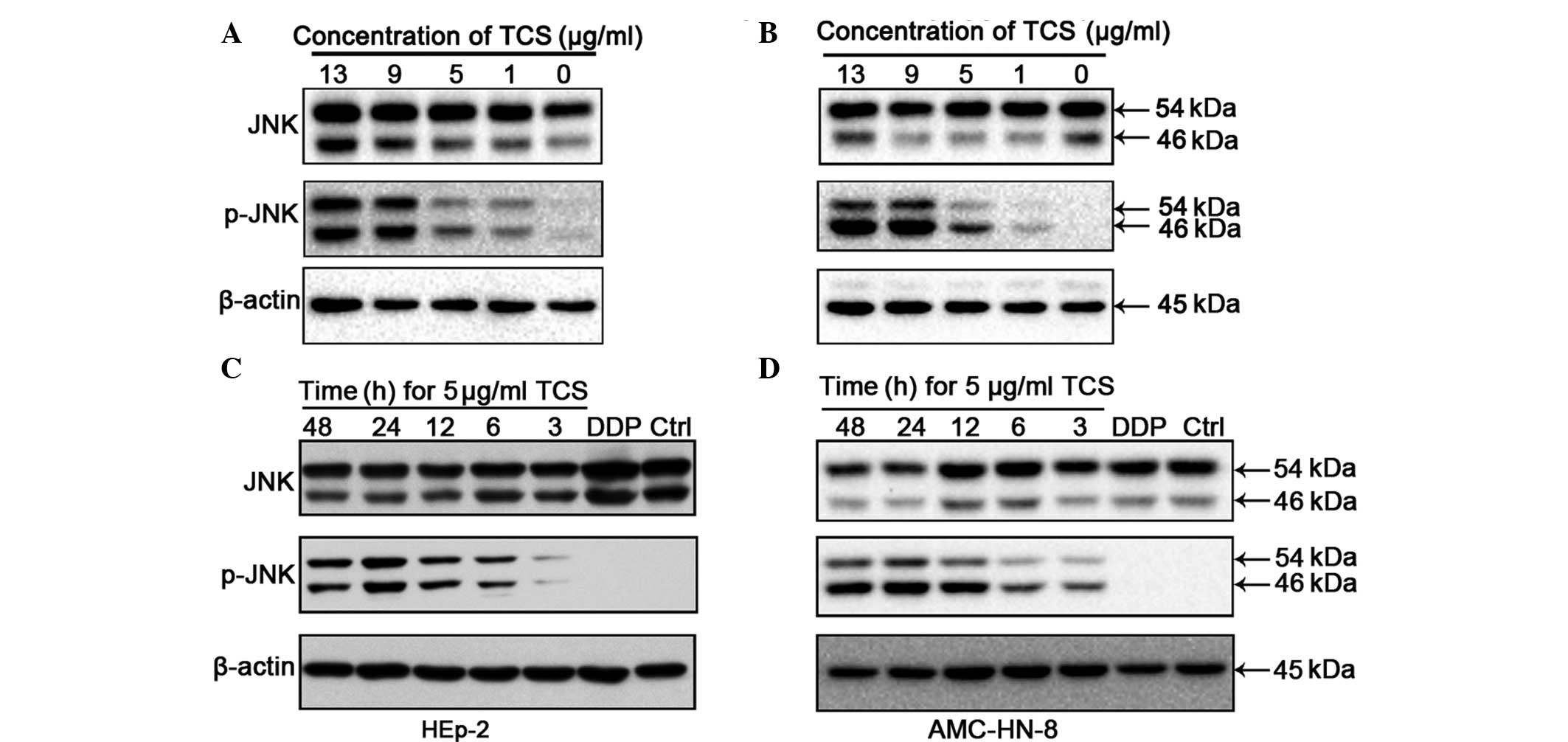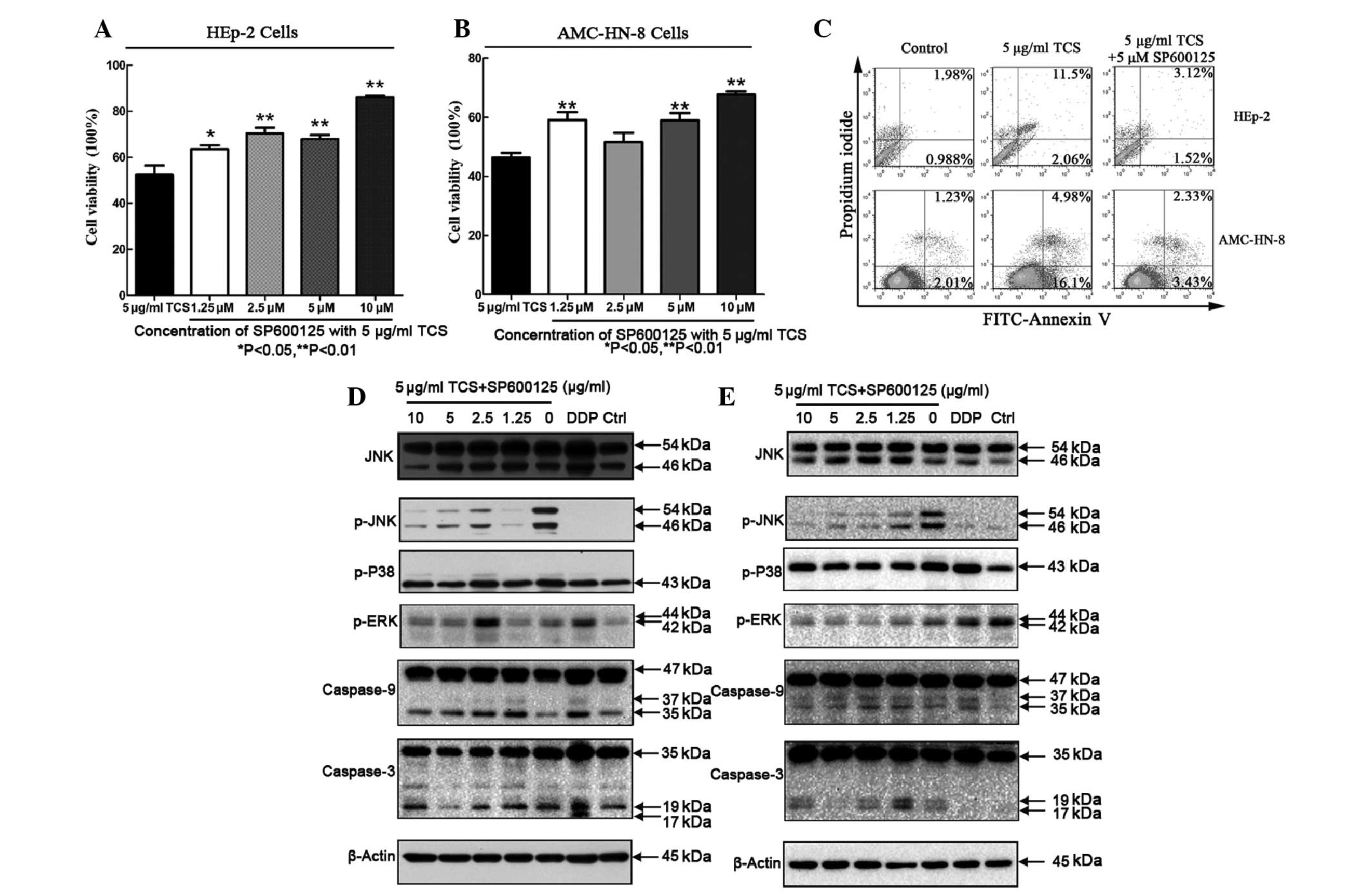|
1
|
Shaw PC, Chan WL, Yeung HW and Ng TB:
Minireview: trichosanthin - a protein with multiple pharmacological
properties. Life Sci. 55:253–262. 1994. View Article : Google Scholar : PubMed/NCBI
|
|
2
|
Li M, Li X and Li JC: Possible mechanisms
of trichosanthin-induced apoptosis of tumor cells. Anat Rec
(Hoboken). 293:986–992. 2010. View
Article : Google Scholar : PubMed/NCBI
|
|
3
|
Tsao SW, Ng TB and Yeung HW: Toxicities of
trichosanthin and alpha-momorcharin, abortifacient proteins from
Chinese medicinal plants, on cultured tumor cell lines. Toxicon.
28:1183–1192. 1990. View Article : Google Scholar : PubMed/NCBI
|
|
4
|
Fang EF, Ng TB, Shaw PC and Wong RN:
Recent progress in medicinal investigations on trichosanthin and
other ribosome inactivating proteins from the plant genus
Trichosanthes. Curr Med Chem. 18:4410–4417. 2011. View Article : Google Scholar : PubMed/NCBI
|
|
5
|
He D, Yau K, He X, et al: Conversion of
trichosanthin-induced CD95 (Fas) type I into type II apoptotic
signaling during Herpes simplex virus infection. Mol Immunol.
48:2000–2008. 2011. View Article : Google Scholar : PubMed/NCBI
|
|
6
|
He D, Zheng Y and Tam S: The anti-herpetic
activity of trichosanthin via the nuclear factor-kappaB and p53
pathways. Life Sci. 90:673–681. 2012. View Article : Google Scholar : PubMed/NCBI
|
|
7
|
Sha O, Yew DT, Ng TB, Yuan L and Kwong WH:
Different in vitro toxicities of structurally similar type I
ribosome-inactivating proteins (RIPs). Toxicol In Vitro.
24:1176–1182. 2010. View Article : Google Scholar : PubMed/NCBI
|
|
8
|
Wagner EF and Nebreda AR: Signal
integration by JNK and p38 MAPK pathways in cancer development. Nat
Rev Cancer. 9:537–549. 2009. View
Article : Google Scholar : PubMed/NCBI
|
|
9
|
Wang P, Xu J and Zhang C: CREB, a possible
upstream regulator of Bcl-2 in trichosanthin-induced HeLa cell
apoptosis. Mol Biol Rep. 37:1891–1896. 2010. View Article : Google Scholar : PubMed/NCBI
|
|
10
|
Wang P and Li JC: Trichosanthin-induced
specific changes of cytoskeleton configuration were associated with
the decreased expression level of actin and tubulin genes in
apoptotic Hela cells. Life Sci. 81:1130–1140. 2007. View Article : Google Scholar
|
|
11
|
Liu J and Lin A: Role of JNK activation in
apoptosis: a double-edged sword. Cell Res. 15:36–42. 2005.
View Article : Google Scholar : PubMed/NCBI
|
|
12
|
Ouyang DY, Chan H, Wang YY, et al: An
inhibitor of c-Jun N-terminal kinases (CEP-11004) counteracts the
anti-HIV-1 action of trichosanthin. Biochem Biophys Res Commun.
339:25–29. 2006. View Article : Google Scholar : PubMed/NCBI
|
|
13
|
Huang H, Chan H, Wang YY, et al:
Trichosanthin suppresses the elevation of p38 MAPK, and Bcl-2
induced by HSV-1 infection in Vero cells. Life Sci. 79:1287–1292.
2006. View Article : Google Scholar : PubMed/NCBI
|
|
14
|
Wang P, Chen LL, Yan H and Li JC:
Trichosanthin suppresses HeLa cell proliferation through inhibition
of the PKC/MAPK signaling pathway. Cell Biol Toxicol. 25:479–488.
2009. View Article : Google Scholar : PubMed/NCBI
|
|
15
|
Kanduc D, Mittelman A, Serpico R, et al:
Cell death: apoptosis versus necrosis (review). Int J Oncol.
21:165–170. 2002.PubMed/NCBI
|
|
16
|
Gao LL, Feng L, Yao ST, et al: Molecular
mechanisms of celery seed extract induced apoptosis via s phase
cell cycle arrest in the BGC-823 human stomach cancer cell line.
Asian Pac J Cancer Prev. 12:2601–2606. 2011.PubMed/NCBI
|
|
17
|
Chirgwin JM, Przybyla AE, MacDonald RJ and
Rutter WJ: Isolation of biologically active ribonucleic acid from
sources enriched in ribonuclease. Biochemistry. 18:5294–5299.
1979.PubMed/NCBI
|
|
18
|
Perez IC, Le Guiner C, Ni W, Lyles J,
Moullier P and Snyder RO: PCR-based detection of gene transfer
vectors: application to gene doping surveillance. Anal Bioanal
Chem. 405:9641–9653. 2013. View Article : Google Scholar : PubMed/NCBI
|
|
19
|
Korzeniewski C and Callewaert DM: An
enzyme-release assay for natural cytotoxicity. J Immunol Methods.
64:313–320. 1983. View Article : Google Scholar : PubMed/NCBI
|
|
20
|
Decker T and Lohmann-Matthes ML: A quick
and simple method for the quantitation of lactate dehydrogenase
release in measurements of cellular cytotoxicity and tumor necrosis
factor (TNF) activity. J Immunol Methods. 115:61–69. 1988.
View Article : Google Scholar
|
|
21
|
Lu Z and Hunter T: Ubiquitylation and
proteasomal degradation of the p21(Cip1), p27(Kip1) and p57(Kip2)
CDK inhibitors. Cell Cycle. 9:2342–2352. 2010. View Article : Google Scholar : PubMed/NCBI
|
|
22
|
Bennett BL, Sasaki DT, Murray BW, et al:
SP600125, an anthrapyrazolone inhibitor of Jun N-terminal kinase.
Proc Natl Acad Sci USA. 98:13681–13686. 2001.PubMed/NCBI
|
|
23
|
Xu J, Gao DF, Yan GL and Fan JM: Induced
apoptotic action of recombinant trichosanthin in human stomach
adenocarcinoma MCG803 cells. Mol Biol Rep. 36:1559–1564. 2009.
View Article : Google Scholar : PubMed/NCBI
|
|
24
|
Lefebvre JL: Candidates for larynx
preservation: the next step? Oncologist. 15(Suppl 3): 30–32. 2010.
View Article : Google Scholar : PubMed/NCBI
|
|
25
|
Chen T, Stephens PA, Middleton FK and
Curtin NJ: Targeting the S and G2 checkpoint to treat cancer. Drug
Discov Today. 17:194–202. 2012. View Article : Google Scholar : PubMed/NCBI
|
|
26
|
Miotto B and Struhl K: JNK1
phosphorylation of Cdt1 inhibits recruitment of HBO1 histone
acetylase and blocks replication licensing in response to stress.
Mol Cell. 44:62–71. 2011. View Article : Google Scholar : PubMed/NCBI
|
|
27
|
Li J, Xia X, Nie H, Smith MA and Zhu X:
PKC inhibition is involved in trichosanthin-induced apoptosis in
human chronic myeloid leukemia cell line K562. Biochim Biophys
Acta. 1770:63–70. 2007. View Article : Google Scholar : PubMed/NCBI
|
|
28
|
Li J, Xia X, Ke Y, et al: Trichosanthin
induced apoptosis in HL-60 cells via mitochondrial and endoplasmic
reticulum stress signaling pathways. Biochim Biophys Acta.
1770:1169–1180. 2007. View Article : Google Scholar : PubMed/NCBI
|
|
29
|
Wang P, Yan H and Li JC: CREB-mediated
Bcl-2 expression in trichosanthin-induced Hela cell apoptosis.
Biochem Biophys Res Commun. 363:101–105. 2007. View Article : Google Scholar : PubMed/NCBI
|
|
30
|
Zhang C, Gong Y, Ma H, et al: Reactive
oxygen species involved in trichosanthin-induced apoptosis of human
choriocarcinoma cells. Biochem J. 355:653–661. 2001.PubMed/NCBI
|
|
31
|
Li M, Chen F, Liu CP, et al: Dexamethasone
enhances trichosanthin-induced apoptosis in the HepG2 hepatoma cell
line. Life Sci. 86:10–16. 2010. View Article : Google Scholar : PubMed/NCBI
|















